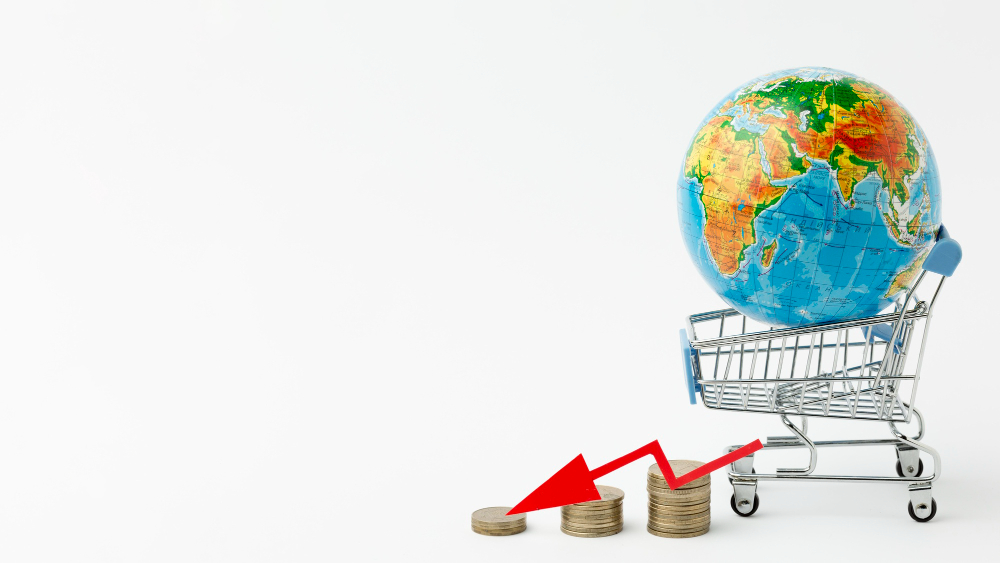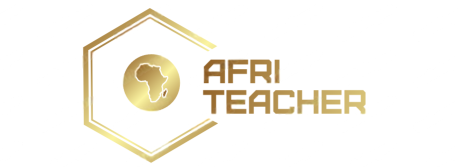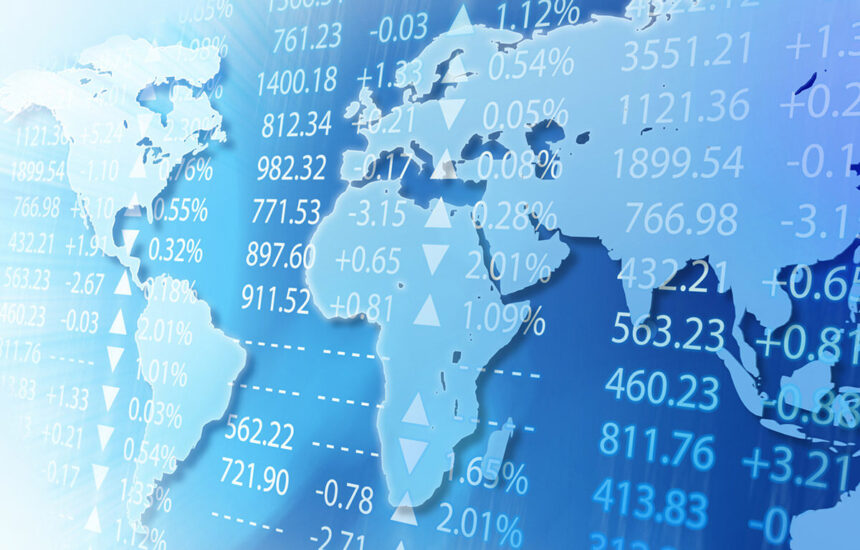In today’s rapidly evolving economic landscape, global markets are no longer reserved for industrialized nations. With increasing internet connectivity and the rise of digital finance platforms, developing countries are experiencing unprecedented access to global trade, investment, and economic empowerment. The digital revolution is democratizing access to economic opportunities that were once out of reach for many.
This shift is not just theoretical—it is fundamentally changing lives. From rural farmers selling produce internationally to tech entrepreneurs in Nairobi launching global apps, the internet and digital financial tools are bridging the economic gap. But how exactly does this transformation happen? Let’s explore how internet connectivity and online finance work together to help developing nations integrate into global markets, lifting communities and reshaping entire economies.
The Power of Internet Connectivity in Today’s World
At the heart of global economic participation lies access to information and communication. The internet has transformed how people learn, work, trade, and interact. For many years, limited internet penetration kept developing countries at a disadvantage. However, over the last decade, mobile technology and broadband infrastructure have significantly expanded internet access, even in remote regions.
Mobile Internet: A Game Changer
Many developing nations have leapfrogged traditional broadband infrastructure in favor of mobile internet. Countries like India, Kenya, and the Philippines have seen explosive growth in smartphone adoption, enabling people to access the digital world without needing expensive infrastructure. According to the GSMA, mobile internet users in low- and middle-income countries reached 2.5 billion in 2023—a milestone that opens up vast new possibilities.
This rapid digitization means that entrepreneurs, small business owners, and ordinary citizens in these countries can now participate in global markets in ways that were impossible before. Whether it’s learning new skills via online platforms or connecting to customers on e-commerce websites, the internet is the gateway to the global economy.
Financial Inclusion Through Online Banking and Digital Wallets
Parallel to internet growth is the rise of online finance. Traditional banking infrastructure—like physical branches—has long excluded millions in developing regions due to cost, location, and paperwork barriers. Digital financial tools like mobile banking, e-wallets, and online payment systems have revolutionized access to financial services.
Mobile Money: Leading the Way
One of the most profound impacts has come from mobile money services like M-Pesa in Kenya. This service allows people to send, receive, and store money using only their phones—no bank account needed. It has enabled millions of unbanked individuals to participate in financial transactions securely.
By integrating mobile money with international platforms like PayPal and Stripe, users in developing nations can receive payments from clients abroad. This means a freelance graphic designer in Nigeria or a virtual assistant in the Philippines can offer services globally, get paid, and reinvest earnings locally. In short, online finance is unlocking global markets for individuals previously left out of the formal economy.
E-Commerce and Small Businesses Going Global

Online marketplaces have provided a lifeline for entrepreneurs in developing countries to access international customers. Platforms like Etsy, Amazon, eBay, Alibaba, and Shopify have enabled small sellers to reach global audiences with minimal overhead.
Case Study: Artisans and Craft Sellers
Take, for instance, a group of artisans in Peru who produce handmade textiles. Previously, their market was limited to tourists or local buyers. But with a simple Shopify storefront and the ability to receive online payments, they can now sell directly to customers in the U.S., Europe, and Asia.
This has not only increased their income but has also allowed them to scale operations, create jobs, and preserve cultural heritage. This is just one example of how digital access is reshaping how developing economies engage with global markets.
Online Work and the Gig Economy
Another way internet connectivity is empowering developing nations is through access to the global freelance economy. Platforms like Upwork, Fiverr, Freelancer.com, and Toptal allow people from any location with a laptop and skills to compete for jobs globally.
A Level Playing Field
Freelancers from countries like Bangladesh, Vietnam, and South Africa now work with companies and clients from Silicon Valley, London, or Berlin. This level playing field breaks geographical barriers and allows people to earn competitive wages without leaving their home countries.
The gig economy is creating new middle classes in cities and towns where formal employment opportunities were previously limited. It is also reducing brain drain, as educated professionals can now thrive locally while still accessing the financial benefits of global markets.
Education, E-Learning, and Economic Upliftment
Knowledge is a key driver of economic mobility. With internet access, learners in developing nations can access free and paid educational resources that dramatically enhance their employability and entrepreneurship skills.
MOOCs and Global Classrooms
Massive Open Online Courses (MOOCs) from platforms like Coursera, edX, Udemy, and Khan Academy offer high-quality education from top universities at little or no cost. Learners can acquire technical, business, language, or creative skills that align with global job market demands.
This form of digital education is helping prepare young people for careers in software development, digital marketing, data science, and many other fields that connect directly with global markets.
Access to Capital and Microfinance Platforms
In the past, small business owners in developing regions struggled to access credit and capital due to lack of collateral or credit history. Today, online finance platforms are addressing this gap.
Crowdfunding and Microloans
Crowdfunding websites like Kiva, GoFundMe, and Kickstarter allow entrepreneurs to pitch business ideas and raise funds from global donors and investors. Microloan platforms offer small amounts of capital at low interest rates, often using mobile phone transaction histories as a proxy for creditworthiness.
These innovations are empowering small businesses to expand, innovate, and serve broader markets—helping them plug directly into the global markets economy.
Remittances and Diaspora Support
Many developing countries rely heavily on remittances—money sent home by citizens working abroad. Thanks to online finance tools, remittances are now faster, safer, and more cost-effective.
Reducing Transaction Costs
Traditional money transfer services like Western Union used to charge high fees. Today, digital platforms like Wise, Remitly, and WorldRemit allow diaspora workers to send money instantly with lower fees. This money often supports local businesses, education, healthcare, and home construction—fueling economic activity at the grassroots level.
These remittances, when reinvested into local enterprises, create a ripple effect that stimulates economic engagement with global markets.
Encouraging Foreign Investment Through Transparency
Digital connectivity doesn’t just empower individuals—it also makes countries more attractive to global investors. Transparency, accountability, and ease of doing business improve when governments adopt digital governance systems.
Fintech and Regulatory Technology (RegTech)
Countries that embrace fintech innovation often also invest in regulatory technologies that ensure financial transparency and compliance with international standards. This boosts investor confidence, facilitates cross-border trade, and helps local startups attract foreign venture capital.
Thus, internet connectivity and online finance play a vital role in integrating developing nations into global markets not only through exports and services, but also through capital inflows.
Blockchain and Crypto: A New Frontier for Financial Inclusion
Blockchain technology and cryptocurrencies are emerging as new tools for financial empowerment in regions with unstable banking systems or limited infrastructure.
Use Cases in Developing Economies
In countries facing currency devaluation or economic sanctions, cryptocurrencies offer an alternative for storing value and conducting international transactions. Blockchain platforms can also provide transparent land records, supply chain tracking, and identity management.
Although these technologies are still developing, they hold immense potential for further opening up access to global markets, particularly in areas with fragile institutions.
Challenges and Digital Divide: Bridging the Last Mile
While the potential is vast, there are significant challenges to address:
- Infrastructure gaps in remote and rural areas
- Digital literacy and lack of technical skills
- Cybersecurity threats and online scams
- Regulatory hurdles that slow innovation
To truly unlock the power of global markets, governments, NGOs, and the private sector must collaborate to close the digital divide. Investments in infrastructure, affordable data access, education, and policy frameworks are critical.
Government Policies and Global Partnerships
Forward-thinking governments are creating policies that encourage digital innovation, online entrepreneurship, and global trade partnerships. Countries like Rwanda, India, and Vietnam are actively investing in tech parks, innovation hubs, and export facilitation programs.
International organizations like the World Bank, IMF, and UNDP also play a crucial role by funding digital inclusion projects and helping small economies scale into global markets.
Sustainability and Long-Term Impact
The integration of developing countries into global markets must be sustainable. That means investing not just in technology but in human capital, environmental resilience, and ethical business models.
Digital access should not be seen merely as a tool for economic growth—but as a path to empowerment, equality, and dignity. When communities can educate their youth, care for their sick, start businesses, and preserve cultural heritage—all while participating in the global economy—the result is a more balanced and inclusive world.
The Global Future is Already Here
In an age where the internet is as essential as electricity, and where digital finance can be accessed with the swipe of a finger, developing nations are no longer waiting for opportunities—they are creating them.
The combination of internet connectivity and online finance is rapidly dismantling old barriers to entry. Individuals, small businesses, and governments alike are harnessing these tools to plug into global markets, turning once-isolated economies into vibrant players on the world stage.
It’s a transformation that benefits not only those in the developing world—but the entire global economy. As more people participate in global trade, innovation flourishes, markets diversify, and humanity as a whole moves forward.
In short, the internet and digital finance are not just unlocking global markets—they’re unlocking global potential.

